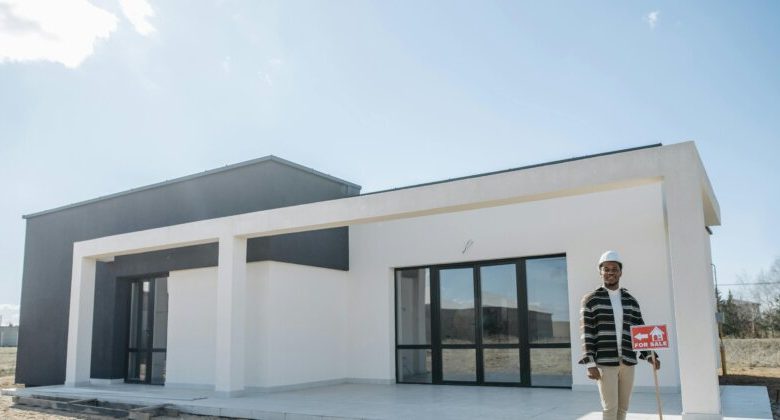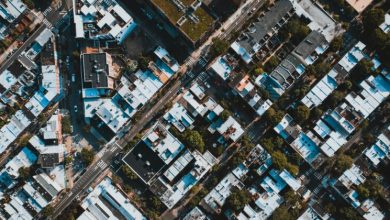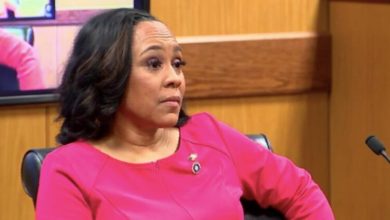Smart Financial Habits to Build Before Buying a Home

Buying a home is often viewed as a significant milestone, one that symbolizes financial stability and independence. However, the path to homeownership requires more than just choosing the right property or finding the perfect mortgage deal. It involves careful financial planning and a solid understanding of the financial steps necessary to make this major life change successful. While many people focus on the immediate aspects of the home-buying process, it’s just as important to build the right financial habits before you even start shopping for a house.
Preparing your finances for homeownership is about more than saving for a down payment. It’s about creating a solid foundation that supports your long-term goals, such as managing debt, improving your credit score, budgeting effectively, and understanding the full scope of homeownership costs. Whether you’re planning to buy a house in the next year or a few years from now, the earlier you start implementing these financial habits, the smoother and more affordable your homebuying experience will be. In this article, we’ll explore the smart financial habits that will help you build the necessary financial foundation and prepare for homeownership with confidence and peace of mind.
1. Save Consistently for a Down Payment
The down payment is one of the first significant hurdles to overcome in the home-buying process. While the typical down payment is around 20% of the home’s price, there are programs that allow as little as 3% down. Regardless of the percentage, consistently saving for your down payment should be a priority.
Having a solid down payment saved up will put you in a great position when it’s time to seek mortgage preapproval, demonstrating to lenders that you’re financially prepared and responsible.
Pro Tip: Open a separate savings account specifically for your down payment. This helps keep the money allocated and prevents you from spending it on other things. Set up automatic transfers to your savings account each month to ensure steady progress.
2. Build and Maintain an Emergency Fund
An emergency fund is a financial safety net that can protect you when life throws unexpected challenges your way—be it medical expenses, car repairs, or job loss. Having three to six months’ worth of living expenses in a separate, easily accessible account ensures you won’t need to tap into your home savings in case of an emergency.
Pro Tip: Set up a separate account for your emergency fund and commit to contributing regularly, even if it’s just a small amount. Think of it as your financial cushion to avoid dipping into your down payment or other savings.
3. Focus on Paying Off High-Interest Debt
High-interest debt, such as credit card balances, can hold you back from your homeownership goals. The more you pay toward interest, the less you can save for a down payment or other home-related expenses. Focus on eliminating high-interest debts before making a large financial commitment like buying a home.
Pro Tip: Use the debt snowball or debt avalanche method to pay off high-interest debts quickly. The debt snowball focuses on paying off smaller debts first, while the debt avalanche prioritizes the highest-interest balances. Both strategies help you become debt-free faster.
4. Check Your Credit Score and Work to Improve It
Your credit score plays a significant role in the mortgage approval process. Lenders use it to assess your creditworthiness and determine the interest rate you’ll receive on your mortgage. A higher credit score often translates into a lower interest rate, saving you thousands of dollars over the life of your loan.
Pro Tip: Check your credit score at least six months before you plan to apply for a mortgage. If your score is lower than you’d like, start by paying bills on time, reducing your credit card balances, and avoiding new credit inquiries.
5. Create a Realistic Budget
Before buying a home, it’s essential to have a clear picture of your monthly income, expenses, and savings. A well-planned budget helps you understand what you can afford in terms of monthly mortgage payments, property taxes, and other homeownership costs, such as utilities, insurance, and maintenance.
Pro Tip: Use a budgeting app or spreadsheet to track your income and expenses. This will give you a clear idea of where your money is going and help you cut unnecessary expenses. Once you know how much you can save each month, you’ll have a better idea of what kind of home you can afford.
6. Avoid Large Purchases or New Debt
In the months leading up to buying a home, try to avoid making large purchases or taking on new debt. Major purchases, like a new car, or new credit inquiries can impact your debt-to-income ratio, which could hurt your mortgage application. Lenders typically look for a debt-to-income ratio of 43% or lower when approving a mortgage.
Pro Tip: If you plan to make any large purchases, wait until after you’ve secured your mortgage approval. If it’s something essential, like a new vehicle, make sure it fits within your budget without pushing your debt-to-income ratio higher.
7. Learn About Mortgage Options and Interest Rates
Buying a home is a major financial decision, and understanding the different types of mortgages available will help you make an informed choice. From fixed-rate to adjustable-rate mortgages, there are several options to consider based on your long-term financial plans. Research current interest rates and understand how they may affect your monthly payments and overall loan cost.
Pro Tip: Meet with a mortgage advisor or financial planner before applying for a loan. They can help you compare different mortgage products, calculate monthly payments, and figure out what works best for your financial situation.
8. Set Aside Money for Closing Costs
In addition to the down payment, you’ll also need to cover closing costs when buying a home. These can include lender fees, appraisal fees, title insurance, and inspections, which can total anywhere from 2% to 5% of the home’s purchase price. Setting aside money for these costs will prevent any unpleasant surprises when it’s time to close the deal.
Pro Tip: Make a list of potential closing costs and factor them into your home-buying budget. Start saving for these expenses early so that you’re prepared when the time comes.
9. Get Familiar with Homeownership Costs
Owning a home comes with ongoing expenses that renters may not be used to, such as property taxes, home maintenance, and utilities. It’s important to estimate these costs in advance so you can plan your finances accordingly. Remember, homeownership isn’t just about the mortgage payment; it’s also about maintaining and improving your home over time.
Pro Tip: Research the costs of homeownership in your area and consider setting up a separate savings fund for maintenance and unexpected repairs.
10. Start Building Wealth with Investments
While saving for your home, don’t forget to grow your wealth with long-term investments, such as retirement accounts, index funds, or other low-risk options. Building an investment portfolio alongside your home savings can help you diversify your assets and provide more financial security as you move into homeownership.
Pro Tip: Start small and invest regularly, even if it’s just a small amount. Over time, compound interest can work in your favor and help build a stronger financial foundation for your future.
Conclusion
Successfully buying a home is not just about making it through the preapproval process or finding a place you love—it’s about having the financial stability to support the costs and responsibilities that come with homeownership. By focusing on building smart financial habits before you even start house hunting, you’ll set yourself up for success and avoid the common pitfalls many first-time buyers face. Whether it’s saving for a down payment, paying off debt, or improving your credit score, each of these habits plays a crucial role in ensuring that you’re ready to make one of the biggest financial decisions of your life.
Start today by setting realistic goals, building a budget, and creating a savings plan. And remember, homeownership is not just about affording a mortgage payment; it’s about managing your finances in a way that allows you to thrive, both now and in the future. With a clear focus on these smart financial habits, you’ll not only be able to buy a home but also create a foundation for long-term financial security, giving you the freedom to enjoy the rewards of homeownership without financial stress. The earlier you start, the more prepared you’ll be when it’s time to make your move into your new home.




